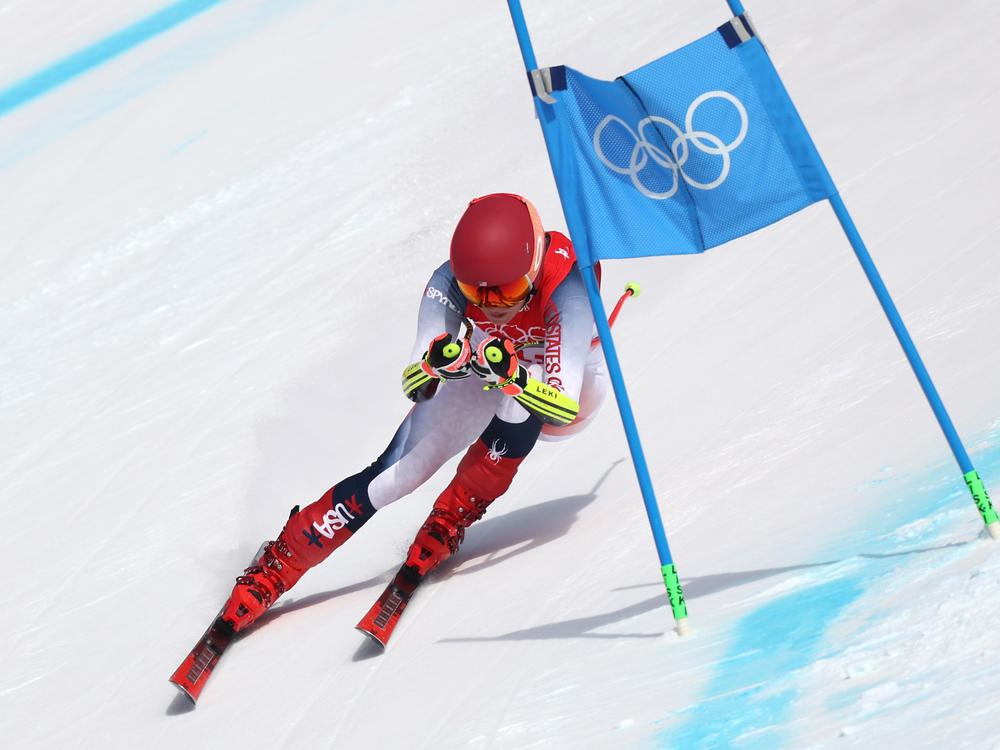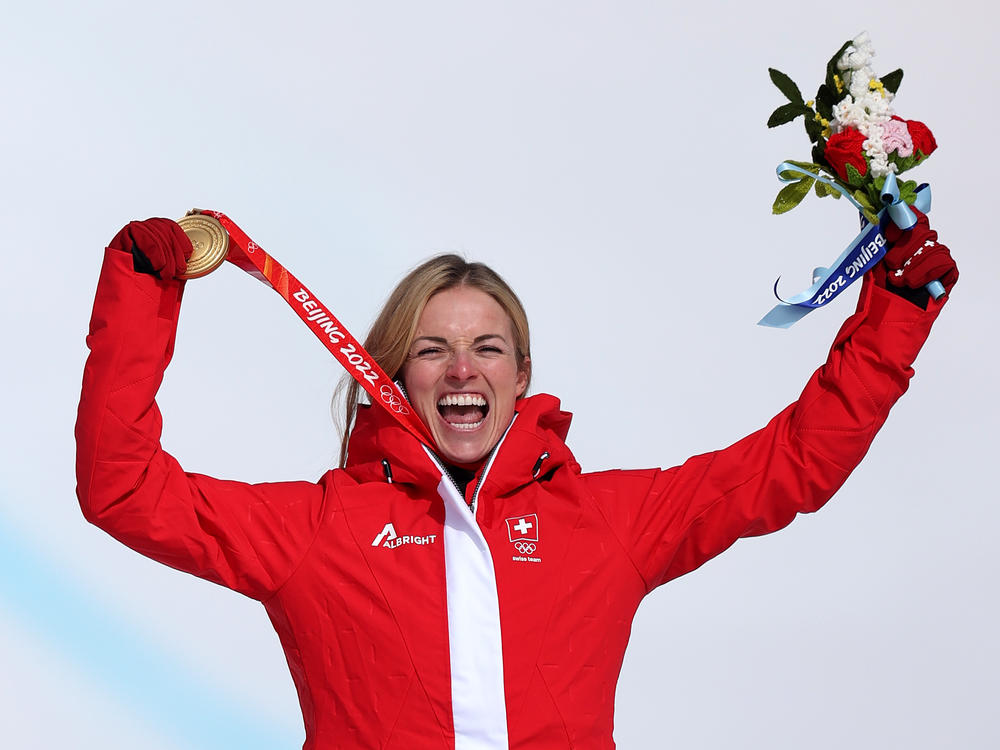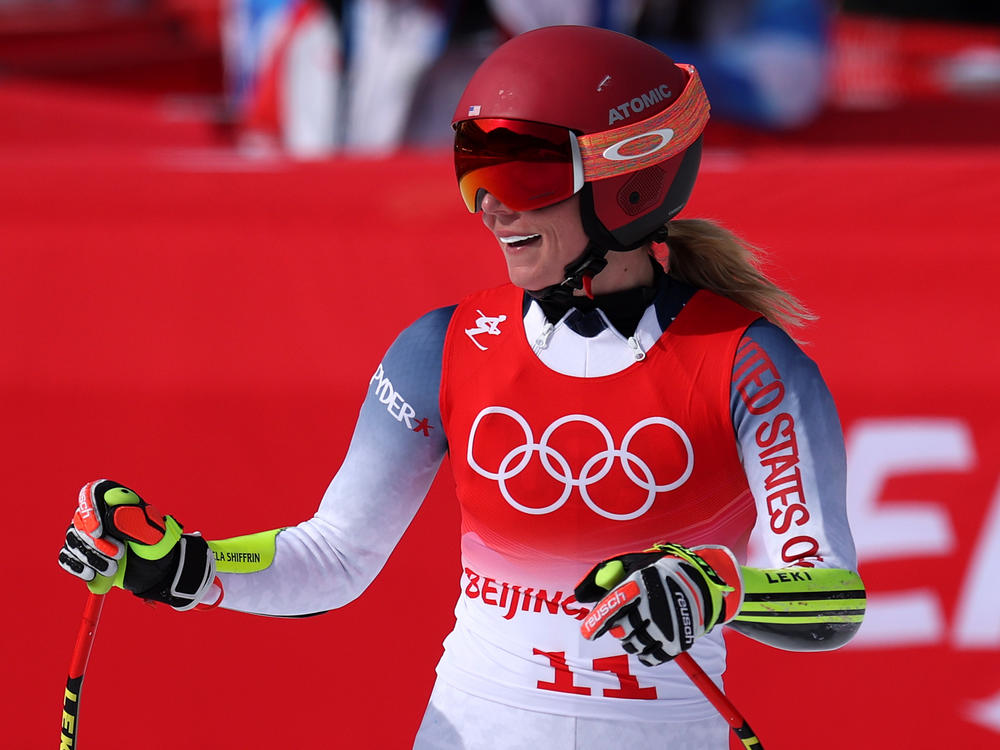Section Branding
Header Content
With a 9th place finish in Beijing, Mikaela Shiffrin shows signs of bouncing back
Primary Content
BEIJING — After failing to finish her top events at the Beijing Olympics this week, Mikaela Shiffrin appeared to show signs of bouncing back on Friday. She finished ninth in women's super-G — well behind gold medalist Lara Gut-Behrami of Switzerland.
Gut-Behrami established an early lead with a time of 1:13.51. None of her 43 competitors were able to match it.
Ninth is not the usual top finish for Shiffrin, a two-time Olympic gold medalist, but after a rough start in Beijing, getting to the end of the course seemed like a big step.
As she skied to the bottom of the slope Friday, Shiffrin smiled, breathing heavily, but appeared relieved.
"I just skied strong, and it's a really big relief to be here now in the finish, having skied a run well," Shiffrin said of her performance. "I wasn't skiing safe or anything, but I also did get to the finish and that's really nice for my heart to know that it's not totally abandoning everything I thought I knew about the sport."
The Beijing Olympics were supposed to be Shiffrin's chance to become the first Alpine ski racer from the U.S. to win three Olympic gold medals. Those expectations came with a lot of added pressure.
Earlier this week, Shiffrin skied 11 seconds into her first giant slalom qualifying run, before slipping and bailing out. Two days later, she skied just five seconds into her qualifying run of her top event — the women's slalom — before also going off course. After the slalom qualifier, Shiffrin sat on the side of the slope for several minutes with her head in her lap, appearing dejected.
"There's a lot of disappointment over the last week. There's a lot of emotions," Shiffrin said after the women's super-G. "[It was] not really easy to reset and know if I was up for the challenge today."
She has also dealt with a series of personal obstacles leading up to her third Olympics. Her father passed away unexpectedly in 2020. Following his death, she said she thought often about retiring.
Shiffrin's difficulties reminded many of gymnast Simone Biles' struggles at the Tokyo Olympics last year. Biles, who was facing personal problems and immense pressure, shocked the world after pulling out of several events, citing the need to focus on her mental health at the Games.
It also renewed talks of the importance of athletes' mental health.
Shiffrin said she received tons of support from fellow professional athletes and fans.
That allowed her to return to the slopes, which seems to have turned out to be for the best. Shiffrin said, "Coming back out and getting the chance to race again was just the perfect thing to do, actually."
On early Friday, she tweeted, "I can't express how grateful I am to have the opportunity to refocus on a new race, in the sport that I love so much. Onward."
She may still compete, and medal, in other events including the downhill, Alpine combined and mixed team parallel.
Copyright 2022 NPR. To see more, visit https://www.npr.org.



